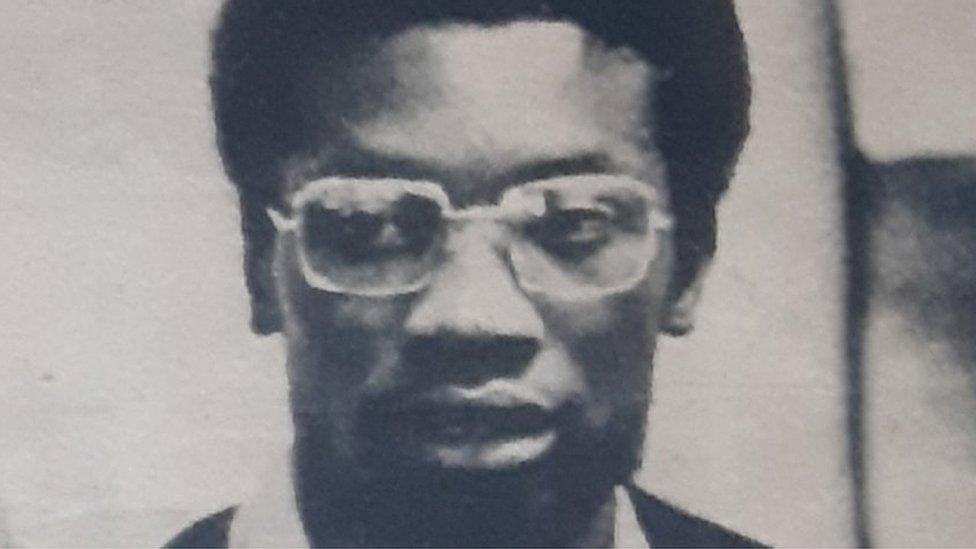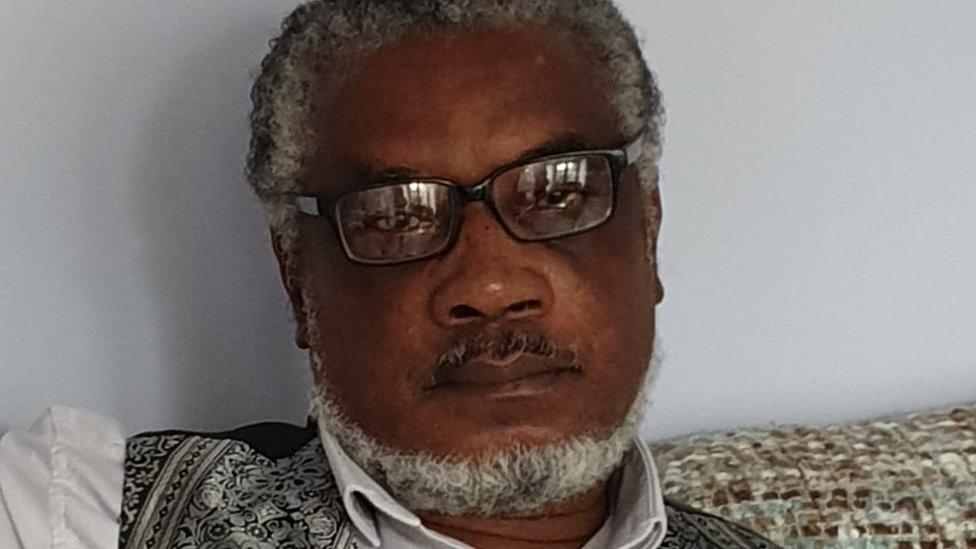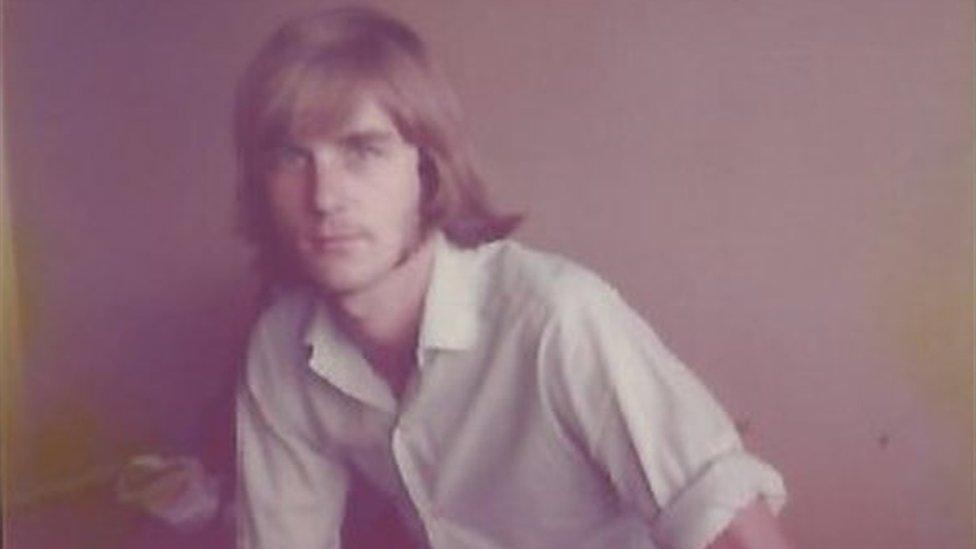'Oval Four': Men 'framed by corrupt detective' to go to court
- Published

Winston Trew said his life fell apart after he served eight months in prison
Two men who say they were framed by a detective nearly 50 years ago have had their cases referred to the Court of Appeal.
Winston Trew and Sterling Christie were among a group - known as the Oval Four - who were arrested at Oval Tube station in south London in March 1972.
They spent eight months in prison for assaulting a police officer and attempted theft.
But a review said the appeal would focus on the officer's "integrity".
The four men, aged between 19 and 23 at the time, were members of a political organisation which represented the interests of black people in London.
They were arrested by a police squad investigating crime on the London Underground.

Winston Trew forged a career as a university lecturer
Plain clothes police officers accused them of "nicking handbags," Mr Trew said.
When the officers refused to show identification, at the group's request, an argument "turned into a big fight".
"We were given a good hiding there to confess to things we didn't do," he said.
'Fitted him up'
The operation was led by Det Sgt Derek Ridgewell, who was the key prosecution witness at the men's trial when they were convicted.
But the officer's career ended in disgrace in 1980 when he was jailed for seven years for plotting to steal goods from the Royal Mail. He died in prison in 1982.
A series of cases has raised further concerns about his honesty, and last year the Court of Appeal quashed the conviction of a businessman, Stephen Simmons, after hearing Ridgewell had "fitted him up".
The Criminal Cases Review Commission (CCRC) said it had now decided to refer the cases of Mr Trew and Mr Christie to the Court of Appeal, although it had failed to trace the other two members of the Oval Four.
George Griffiths and Constantine "Omar" Boucher, the remaining defendants, are understood to have left the UK in the 1970s.
They can separately apply to have their case referred to the Court of Appeal if they choose to.
"The referral is made because the commission considers there is a real possibility that the court will quash the conviction on the basis of new evidence and arguments concerning the integrity of DS Ridgewell," it said, adding that the case may have "potential significance" for a number of other similar convictions.

You may also be interested in:

Mr Trew, now 69, said he was "absolutely delighted" there was to be a fresh appeal, saying his life had been "shattered" when he was jailed 47 years ago.
"My wife left me, I lost my confidence, I was a shell of the person I was before," he said.
Mr Trew, who remarried and forged a career as a university lecturer and author, said he thought every day about what had happened and had "never given up" trying to overturn his conviction.
"The police did something wrong, so I'm going to fight the injustice."
The appeal is expected to be heard next year.
- Published17 January 2018
